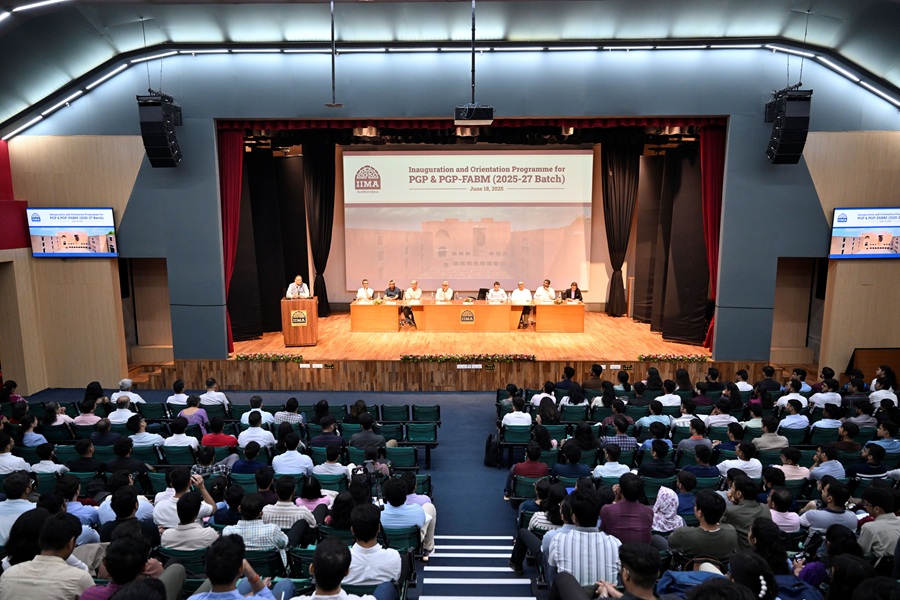The Indian Institute of Management Ahmedabad (IIMA) welcomed a total of 460 students to two of its flagship programmes on June 18, 2025. Of these, 414 students joined the 62nd batch of the Two-Year Full Time Post Graduate Programme in Management (PGP), while 46 students were inducted into the 26th batch of the Two-Year Full Time Post Graduate Programme in Food and Agribusiness Management (PGP-FABM). These students hail from a diverse mix of backgrounds, age, and work experience. The inaugural event was held at the campus today in the presence of leadership, faculty members, and staff of the Institute.
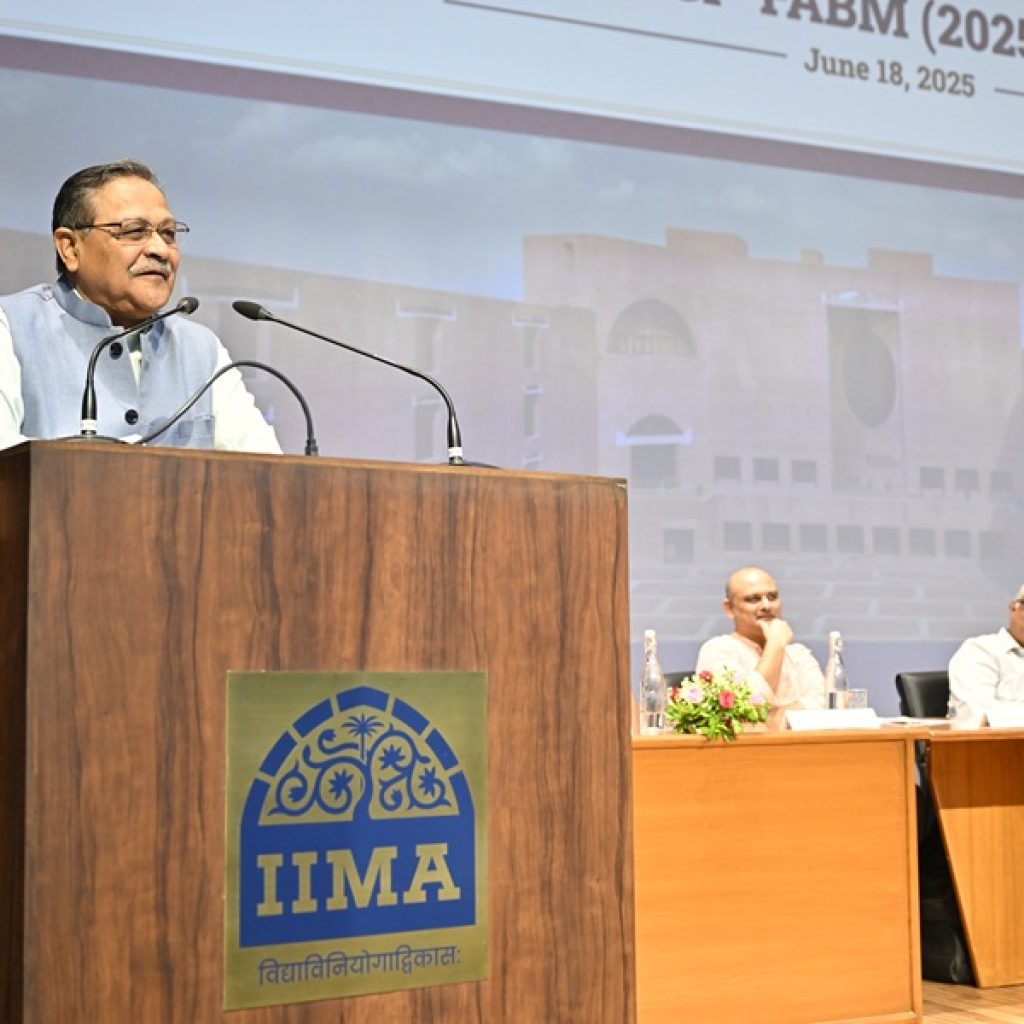
Delivering the inaugural address, Professor Bharat Bhasker, Director, IIMA, said, “You have arrived at a platform that has been producing leaders for six decades. During this time, IIMA has not only produced leaders but also the methodology that enables this transformation in people. Our alumni have made their mark in various domains, and as you step into their shoes, you are stepping into a legacy of excellence.”Highlighting the diversity of the new cohort, Professor Bhasker encouraged the students to adopt a spirit of cooperation and emphasised the importance of peer learning. “You have come from a variety of backgrounds, including commerce, various liberal arts disciplines, engineering, chartered accountancy, company secretaryship, and so on, and bring different kinds of strengths with you. Competition is not the key here; rather, cultivate the spirit of cooperation and assimilate all kinds of knowledge to shape your leadership journey. So, learn from each other and learn the art of balancing your time between academics and extracurricular activities,” he added.
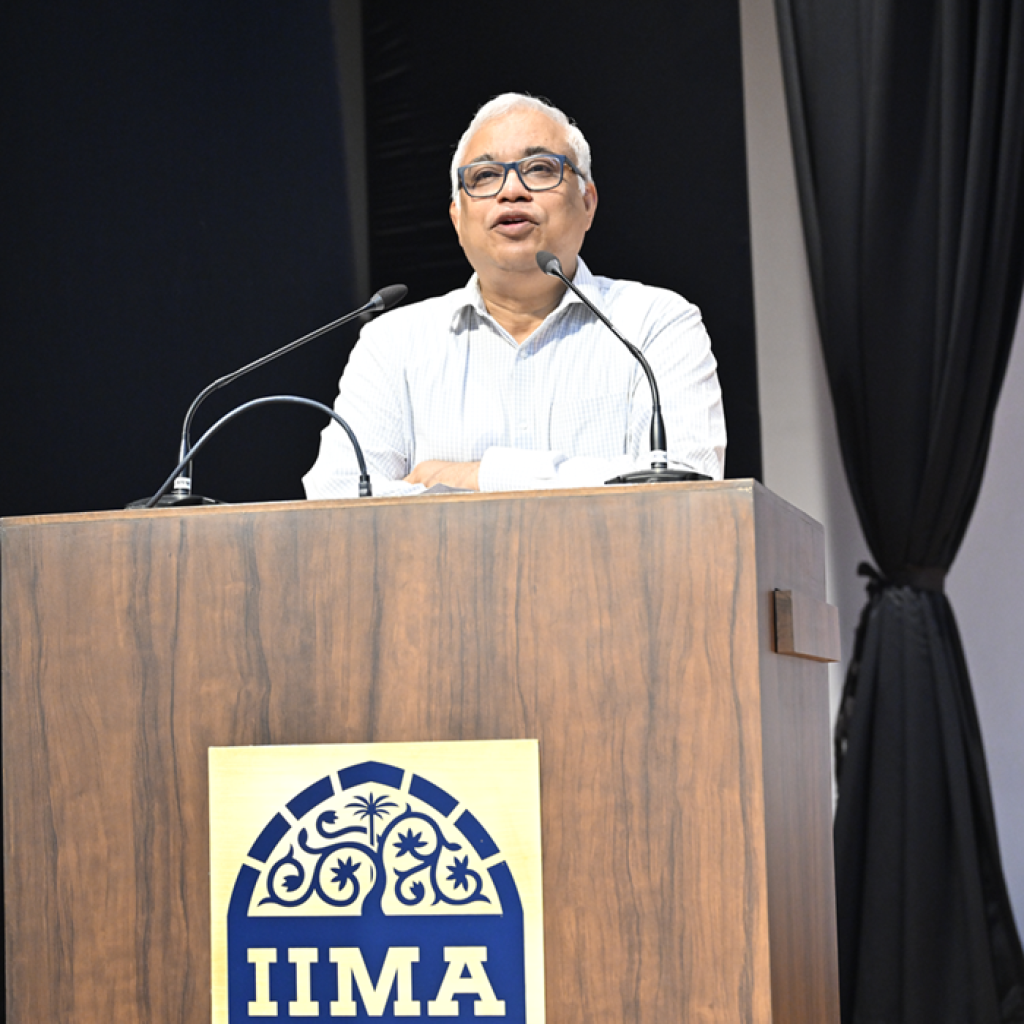
Delivering the welcome address, Professor Diptesh Ghosh, Dean (Programmes), IIMA, said, “You are among the select few who have made it here from the lakhs of applications we received, and are now part of programmes which have been consistently ranked number one in the country and are among the top in the world. Over the years, we have continuously evolved these programmes to ensure that those graduating from this Institute represent the very best the country has to offer.”Encouraging the students to make the most of their time at the Institute, he added, “This place is demanding, and many of the courses will be new to you. Our motto- ‘Development through the Application of Knowledge’- reflects our belief that management is an applied discipline. What matters more than knowing facts is your ability to apply them in practice. This comes alive in our classrooms through real-world business scenarios that require you to make decisions, which is the essence of the case methodology that IIMA is renowned for.”
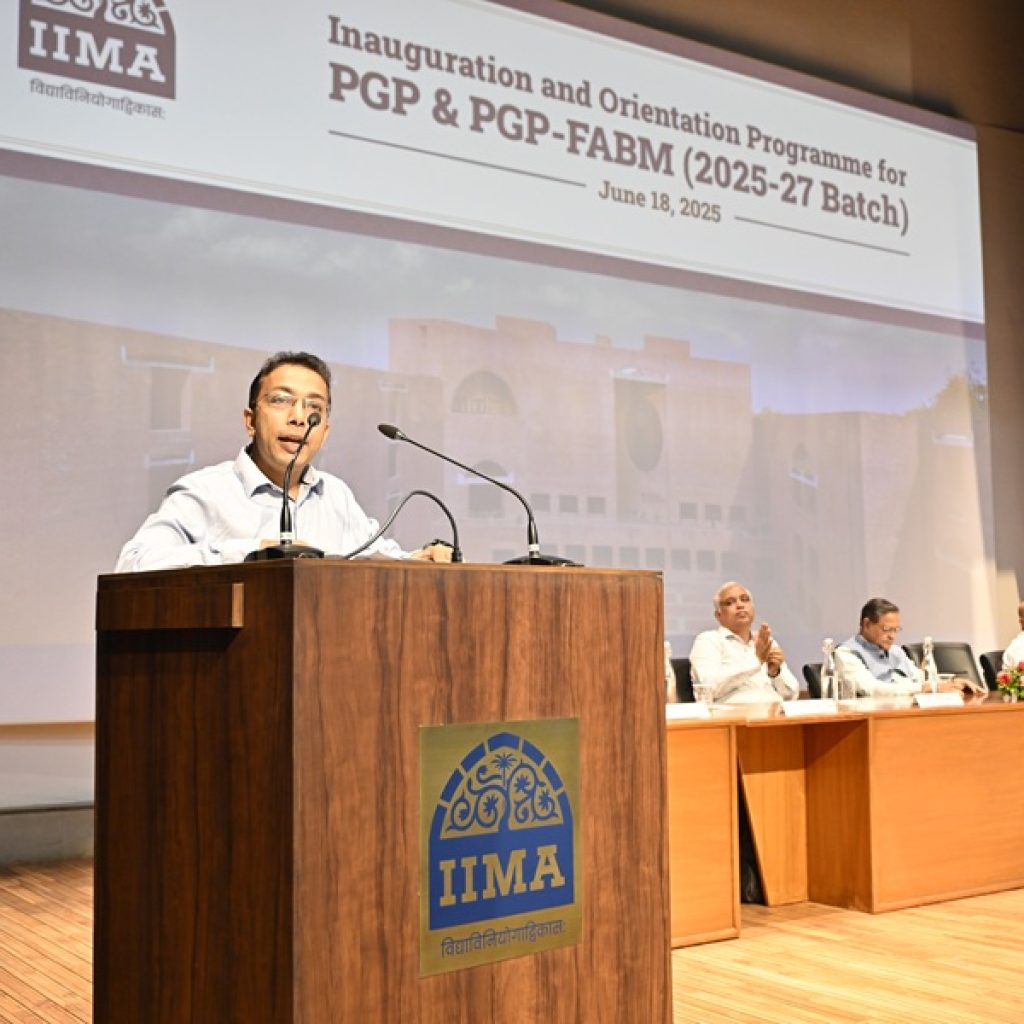
Professor Ankur Sinha, Chairperson, PGP, IIMA, emphasised the importance of human values and encouraged the students to uphold them. He said, “Be courteous, sensitive, and respectful to those around you; while engaging in discussions inside and outside the classrooms, remain inclusive and open to diverse opinions and perspectives; manage your time effectively; learn to work in groups and above all, never compromise on integrity.” He also urged students to use technology responsibly and encouraged them to remain curious and participate actively in various activities on campus.
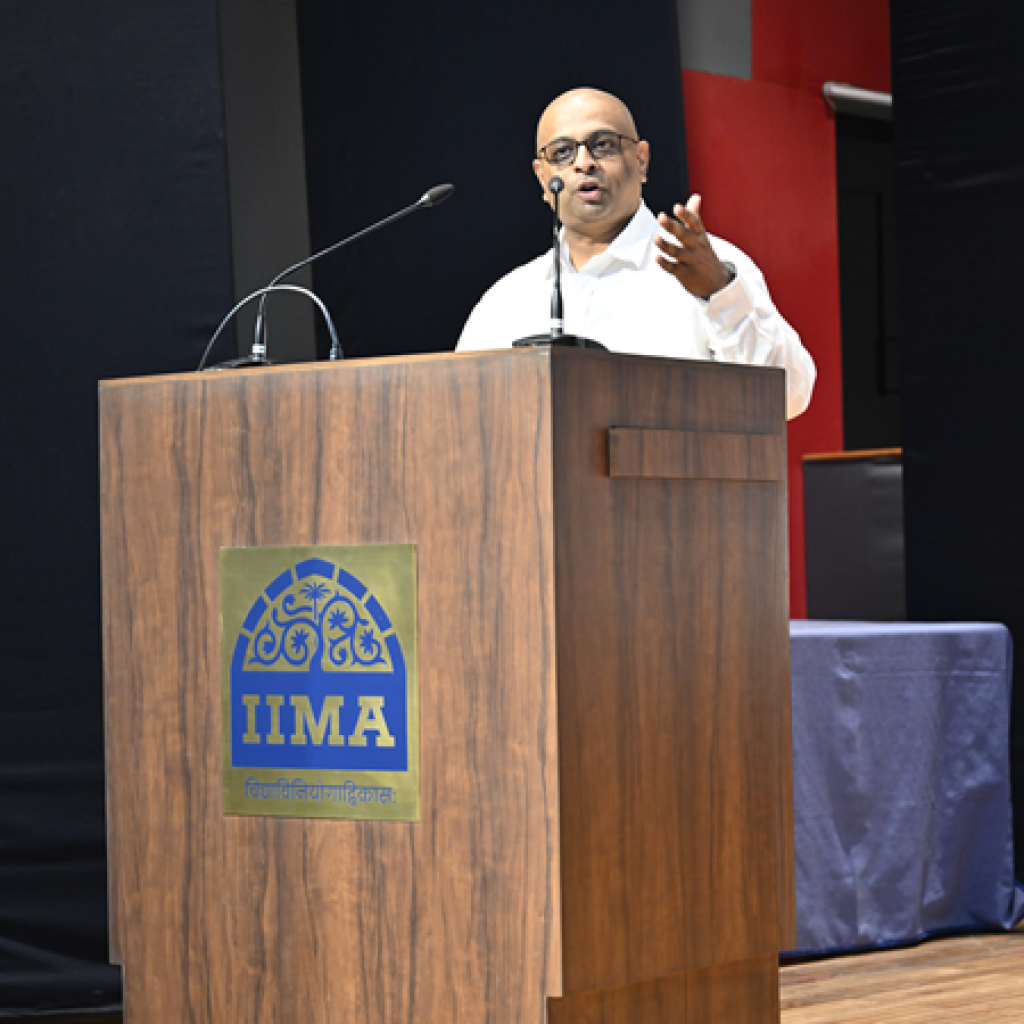
Professor Ranjan Kumar Ghosh, Chairperson, PGP-FABM, IIMA, said, “You have walked into a legacy of excellence, and it is your responsibility to take it forward. This is a great opportunity for you to take responsibility for your growth and become the best versions of yourselves.” Speaking about the agri-business sector’s growing importance, he said, “Food and agri-business is at the cusp of transition, where it is emerging as a leading sector with immense opportunities. You are entering at a time when you can truly make a lasting impact.”
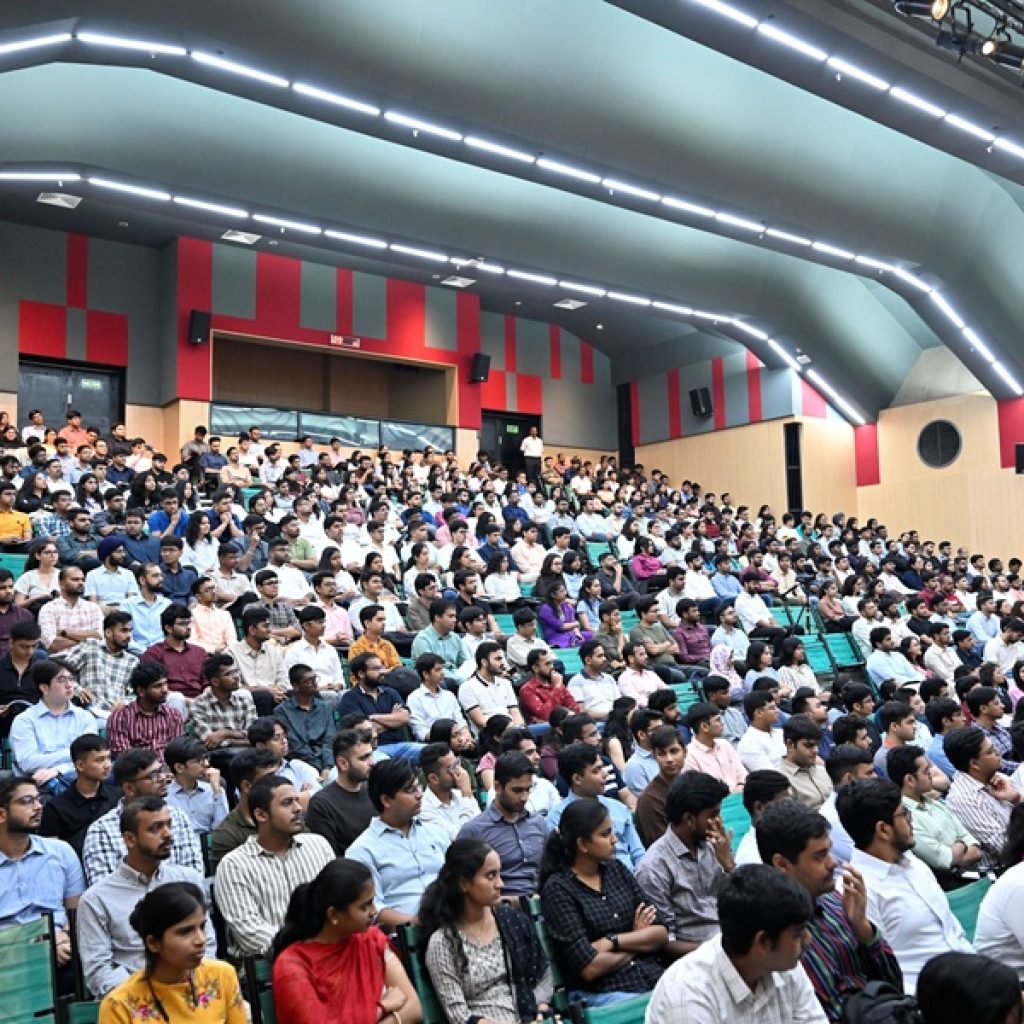
During the event, Professor Karthik Sriram, Chairperson, Admissions, IIMA; Professor Viswanath Pingali, Chairperson, Placement, IIMA; Prof. Balagopal Gopalakrishnan, Chairperson, Student Housing, Activities, and Welfare, IIMA; Prof. Rajat Sharma, Chairperson, Sports and Recreation Activities (SARA), IIMA; and Ms. Tanya Ahuja, General Secretary, Students’ Affairs Council (SAC), IIMA; also addressed the incoming students, inspiring them to embrace their journey ahead and encouraged them to make the most of their time on campus.Diversity and Inclusivity:The Institute takes pride in its distinctive teaching approach that offers students a transformative learning experience, combining thoughtfully-curated classroom discussions with peer learning interventions. In line with this, diversity remains one of the core requirements for student intake at IIMA, which enhances this experience. Each cohort includes individuals from a wide range of academic disciplines, professional experiences, age groups, genders, and socioeconomic and cultural backgrounds. This brings in new perspectives to help students learn from each other. The course curriculum is also designed to meet the needs of a diverse student community. The PGP batch of 2025-27 comprises an equal mix of 50 percent students each from engineering and non-engineering backgrounds. Furthermore, this year, the batch has 30.6 percent female students. The students possess an average work experience of 25 months, with 27 percent freshers and 73 percent students having work experience in various sectors. Out of the 46 students in the PGP-FABM batch of 2025-27, 45.65 percent are female students, while 54.35 percent are male students. All the students in the cohort come from agriculture and allied agriculture disciplines. The students of the PGP-FABM batch of 2025-2027 have an average work experience of 20 months, which includes 60 percent freshers and 40 percent students having work experience. The average age of students remains 23 in both programmes. A significant number of differently abled students have joined the PGP Class of 2025-2027. The Institute has always advocated the concept of inclusive education and has set up an EOO (Equal Opportunity Office) that collaborates with these students to understand their special needs and provides several facilities including Apple iPads, automotive wheelchairs, specialised software, high-resolution cameras for laptops, and any other specific requirements they may have during their student life on campus.

